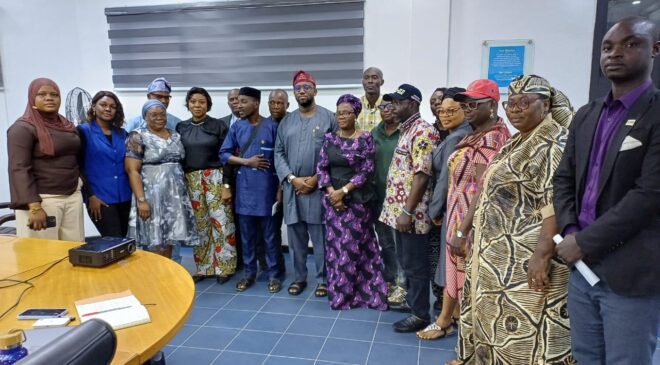
LAGOS/Nigeria: Civil Society Organisations (CSOs) in Lagos have declared support for the proposed pilot Public-Private Partnership (PPP) aimed at revitalising seven mini and micro waterworks across the state.
The endorsement came during an engagement session with the leadership of the Lagos Water Corporation (LWC) on Thursday, September 18, 2025, at the corporation’s headquarters in Ijora. The meeting was convened to address concerns and deepen understanding of the PPP initiative.
Speaking at the forum, the Managing Director of LWC, Engr. Mukhtaar Tijani, said the partnership was designed to ensure sustainable and effective service delivery to residents. “We have chosen to implement a different approach to achieve improved outcomes, particularly to ensure adequate provision of potable water for Lagosians,” he explained.
Tijani stressed that the success of the pilot scheme would pave the way for scaling up similar projects across the state, thereby reducing the long-standing deficit in potable water supply.
Echoing this, the Executive Director of Operations, Engr. Helen Taiwo, assured stakeholders that the corporation was committed to boosting production capacity and enhancing customer satisfaction. “We welcome private sector collaboration to foster mutual understanding and alignment as we work towards shared objectives,” she said.
In a slide presentation delivered on behalf of the Managing Director, Engr. Titilola Bright-Oridami, Head of Transformation and Strategy, listed the benefits of the PPP model to include more reliable water supply, fair and transparent tariffs, a grievance redress mechanism, and a Community Service Charter to strengthen accountability.
Representatives of the CSOs commended the LWC’s transparency and pledged to share the engagement outcomes with their communities. They also expressed confidence that the initiative would help tackle the persistent challenge of insufficient potable water in Lagos.
They further reaffirmed their commitment to ongoing dialogue with the corporation and to supporting measures aimed at ensuring equitable access to clean water for all Lagosians.
The Lagos Water Corporation, burdened by ageing infrastructure, rapid population growth, and inadequate investment, currently produces far less than the 540 million gallons of water per day required to meet demand. The PPP initiative is expected to inject private sector investment and technical expertise into the system, with the pilot project serving as a model for broader adoption across the state.
